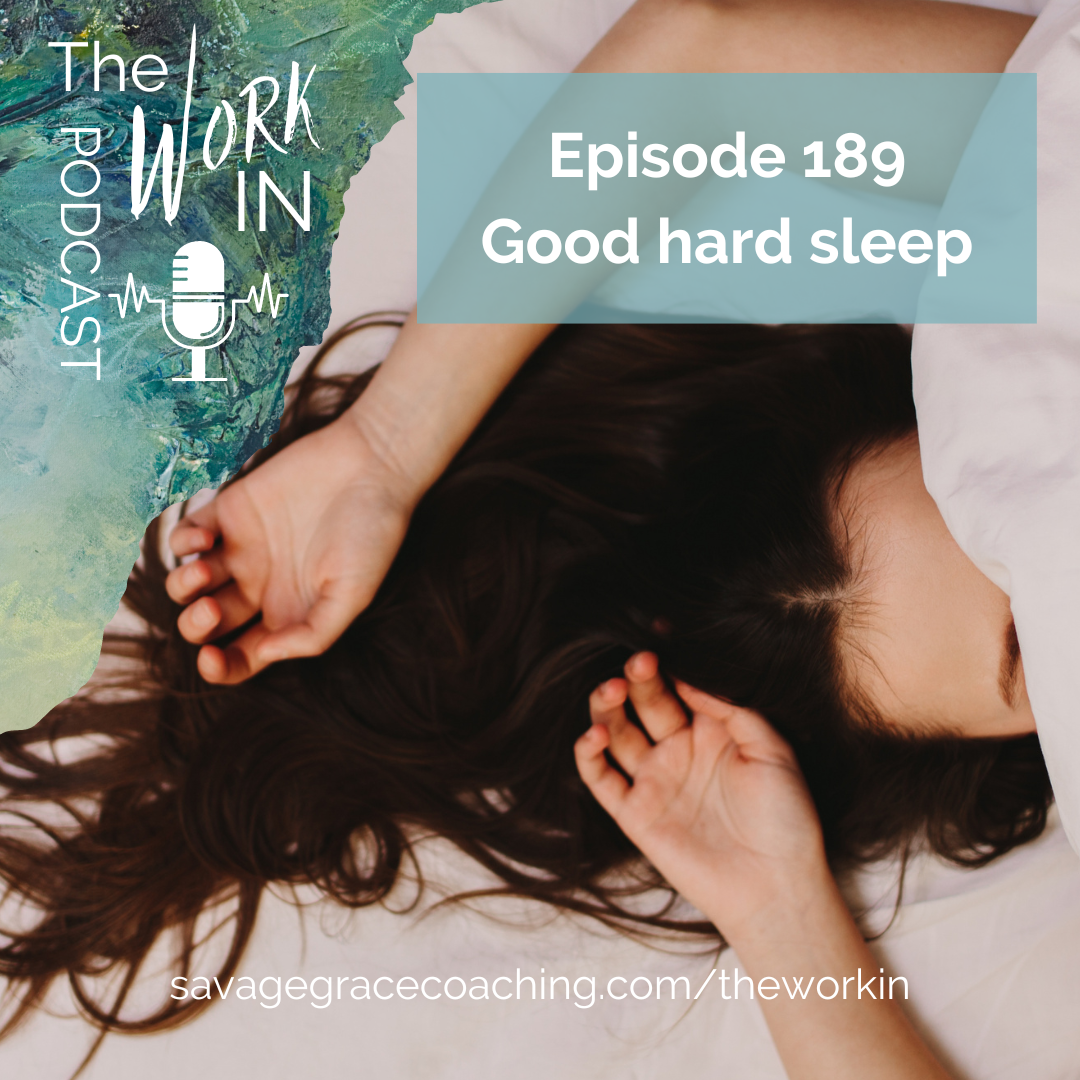
Welcome to The Work IN!
Racing the mind to sleep: Mastering the art of recovery
Racing thoughts, rumination, wired and tired. All of these are top complaints about sleep disturbances. Have you been there? Physically, mentally and emotionally exhausted and yet incapable of shutting down the racing thoughts in order to get to sleep. It’s not your fault but it is within your control. And that’s our Work IN today. We’re going to explore top down and bottom up tools to win the race to sleep and master the art of recovery.
Eating to sleep and sleep to cure cravings
If you’ve ever felt the frustration of mystery “overnight” weight gain or doing everything right and not getting the results you’re after. Or struggled to find a good night sleep in spite of exhaustion. This is the episode for you. Our work IN today is a look at the link between sleep and cravings and how we can leverage the gut brain communication pathways to reset our metabolism AND get more restful restorative sleep.
Good hard sleep
Sleep is a hard thing. Good sleep is even harder.The complexity of our network of systems makes it even harder to isolate the keys to getting a great night’s sleep when literally anything and everything can disturb our sleep. While occasional sleep disturbances can be normal for sure, long term sleep disruption is not. Our work IN this week is changing the way we look at the complex puzzle of sleep from a nice to have to a non negotiable priority in our health.
Menopause metamorphosis: Sleep + Hot flashes
Today we are talking about sleep and hot flashes. For the past few weeks we’ve been talking about how menopause and perimenopause affects our bones, our muscles, our pelvic floor, our gut, our brain, our metabolism and more and perhaps you’ve already noticed some of the connections between all of these areas. Sleep is one of those integral connections. How we sleep no matter what season of life we’re in is the canary in the coal mine. If we don’t sleep well we don’t function well and it’s an indicator that we aren’t functioning well. In perimenopause and menopause it’s the number one complaint for women. Not that we can’t get to sleep but that we can’t stay asleep. And the culprit is often the dreaded hot flash. What is going on here and what can we do about it? That’s the question for today’s Work IN.
The Sleep Sex Stress Connection
Everything we do during the day can affect how we sleep from what we eat and drink to when we eat and drink, when and how we exercise, whether or not we get outside to the temperature of the room and the state of our sex life. But today I want to talk about something different in relation to sleep, sex and stress. And that’s our perception of safety.
How to wake up to better sleep in perimenopause and menopause
If there’s one thing that every woman I know complains about, it's sleep deprivation. There’s a reason they use it for torture, oops I mean enhanced interrogation. Sleep disturbance every once in a while, a night or 2 here and there, is not a problem. More than 3 nights a week might be. Now I thought it was just me but apparently waking between 2 and 4 AM every night like clock work is pretty common for women in perimenopause and menopause. So today we’re going to take a look at why that happens and what you do about it.






